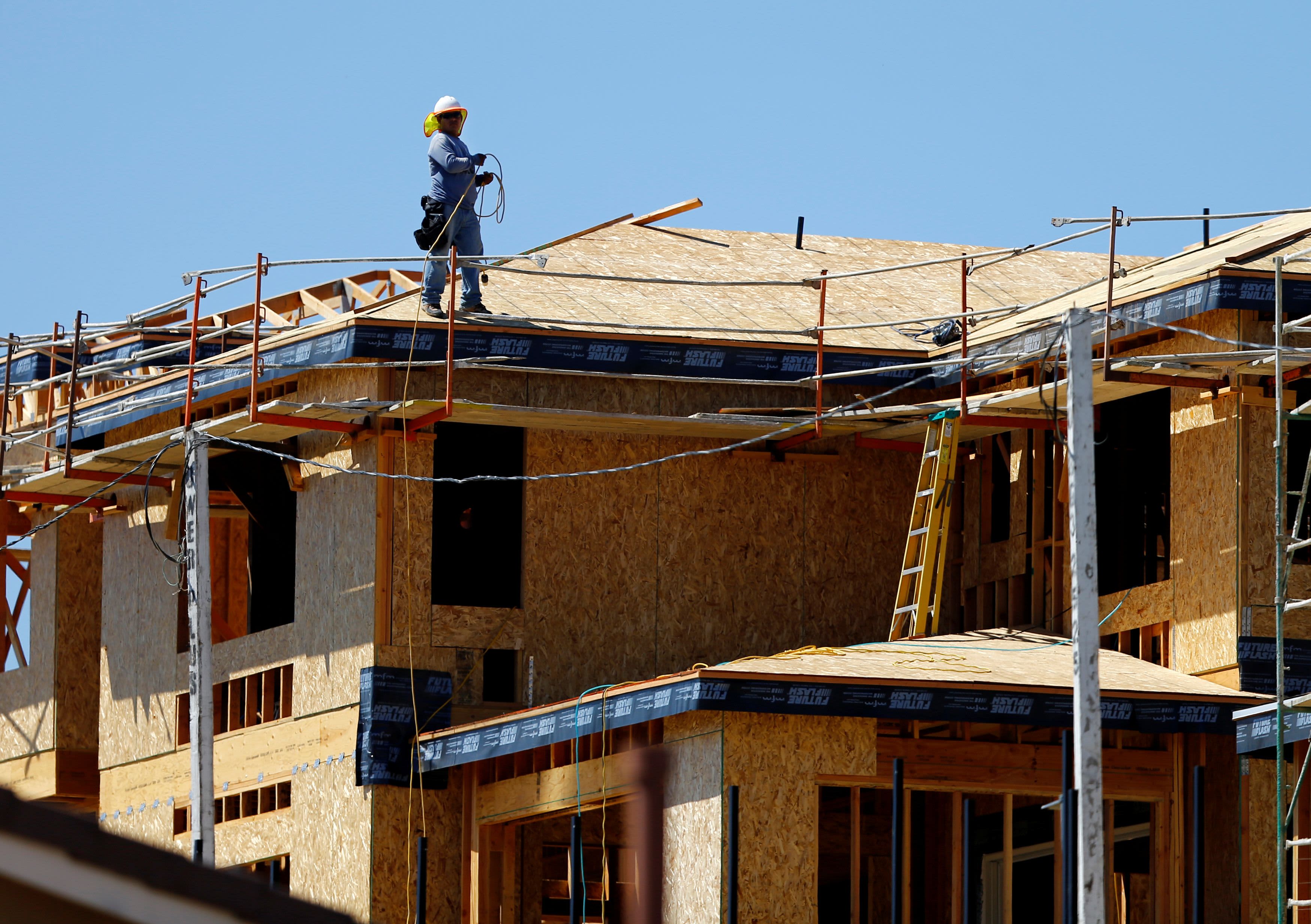
The price of lumber has fallen sharply in the last few months, but apparently that has not been enough to take the pressure off homebuilders.
Sentiment among single-family homebuilders dropped 5 points to 75 in August on the National Association of Home Builders (NAHB)/Wells Fargo Housing Market Index (HMI).
Anything above 50 is considered positive, but that is the lowest reading since July 2020. The index stood at 78 last August.
Of the index’s three components, current sales conditions fell 5 points to 81 and traffic of prospective buyers also fell 5 points to 60. Sales expectations in the next six months were unchanged at 81.
Builders are contending with continued rising costs for materials as well as for skilled labor. That is pushing the price of newly built homes ever higher and clearly affecting demand.
More than 56% of new and existing homes sold between the beginning of April and end of June were affordable to families earning the U.S. median income of $79,900. This is down sharply from the 63.1% of homes sold in the first quarter of 2021 and the lowest affordability level since the beginning of the NAHB’s revised series in the first quarter of 2012.
“Some prospective buyers are experiencing sticker shock due to higher construction costs,” said NAHB Chairman Chuck Fowke, a homebuilder from Tampa, Florida. “Policymakers need to find long-term solutions to supply-chain issues.”
The price of lumber has come down dramatically since its peak earlier this year. Lumber fell 4.91% on Monday to settle at $470.90, its lowest since July 6, 2020. Lumber is down 72.48% from its intraday peak of $1,711.20 on May 10.
“While lumber prices are showing improvement, the price and availability of other building materials remain a challenge. These materials include flooring, drywall, appliances and windows, said the NAHB’s chief economist, Robert Dietz.
Aggregate residential construction material pricing rose 13% in the first six months of 2021, per NAHB analysis of producer price index data.
“While the demographics and interest for home buying remain solid, higher costs and material access issues have resulted in lower levels of home building and even put a hold on some new home sales,” Dietz added, noting that his expectation is that production bottlenecks should ease over the coming months and the market should return to more normal conditions.
Regionally, based on three-month moving averages for regional HMI scores, sentiment in the Northeast fell 1 point to 74 and in the Midwest dropped 2 points to 68. In the South builder sentiment declined 3 points to 82 and in the West dropped 2 points to 85.


 Signal2forex.com - Best Forex robots and signals
Signal2forex.com - Best Forex robots and signals




